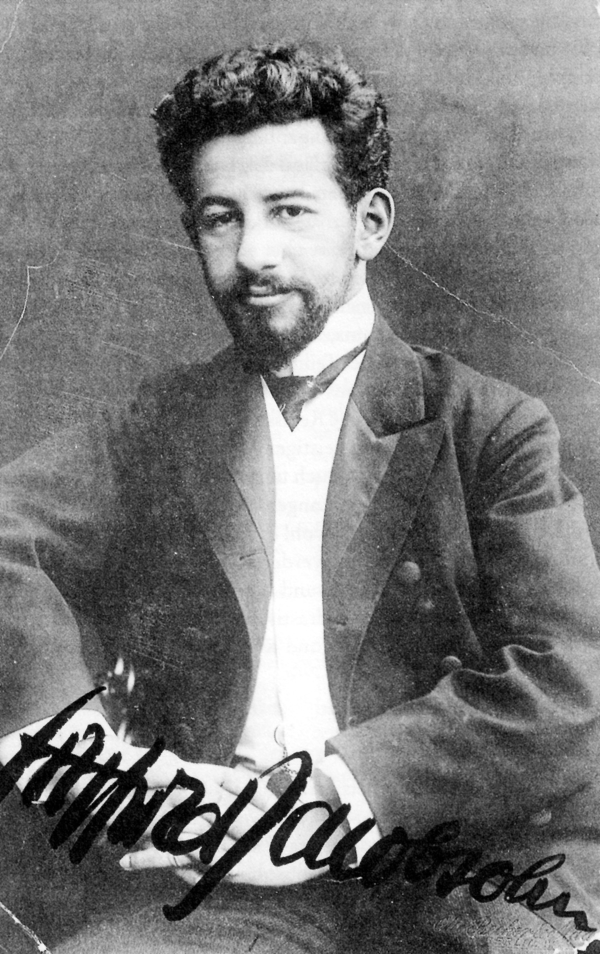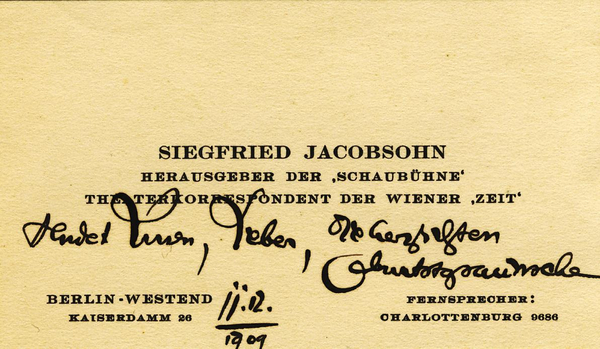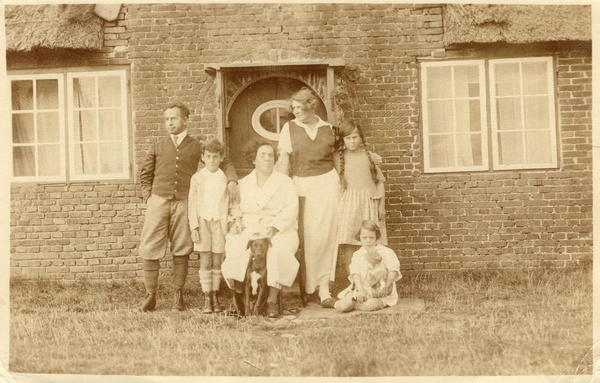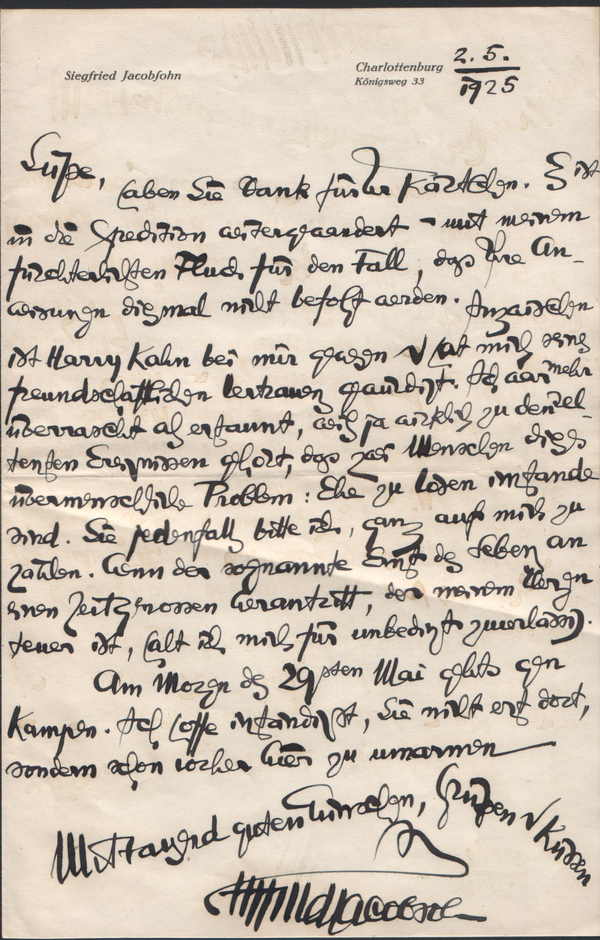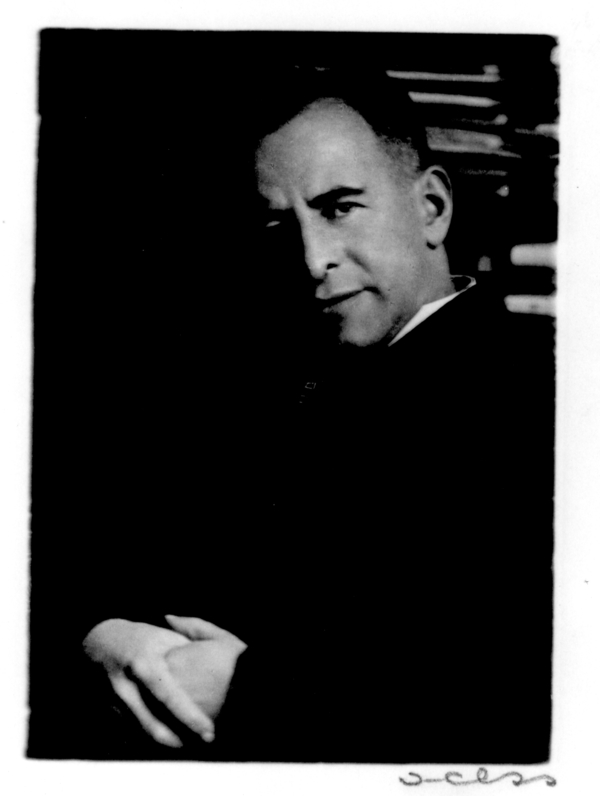Audio guide for reading
Audio guide for reading Siegfried Jacobsohn was born in 1881 in Berlin. He made his mark since 1905 as the publisher of the most important and most agressive theatre-magazine “Die Schaubühne” before the First World War.
Eight years later law-student Tucholsky joined the weekly magazine and soon became its most important staff-member – and Jacobsohn became his mentor. The relationship between the two was by no means limited to their work. Tucholsky wrote about Jacobsohn later:
“He was the receiver we transmitted to. A teacher, not a supervisor; a friend, not a publishing clerk; a free man, not a darling of the public.”
In the Weimar Republic the magazine opened up to political topics and was renamed “Die Weltbühne”. Tucholsky described that Jacobsohn had only one goal with his democratic weekly magazine for politics, economy and culture:
“Whatever the magazine said, made it into the country – hushing up didn’t help, screaming didn’t help, searching for ‘motifs’ didn’t help, because there were no others than the One: the never opressed urge to tell the truth.”
After Jacobsohn’s death in December 1926 Tucholsky took over the management for the magazine for a few month, but already in Mai 1927 he handed it over to Carl von Ossietzky.
Tucholsky described the loss of Jacobsohn as follows:
This man, with the sharpest mind, urged us on to peak performance – you couldn’t fool him. He noticed everything. He reproved remorselessly, but you learned from it. It outweighed hole grammars, what he called ‘translate into German’. One time he found something he did not understand. “What does this mean? It is flawy!” he said. I rebelled against it and knew it so much better. “I wanted to say…” I rebuked – and explained exactly how it was meant. “That’s what I wanted to say”, I closed.
And he: “Than say it.”
I adhered to that ever since.”
![[Translate to Englisch:] Kurt Tucholsky Literaturmuseum [Translate to Englisch:] Kurt Tucholsky Literaturmuseum](/fileadmin/_processed_/4/c/csm_logo-ktm_adccaface9.png)
